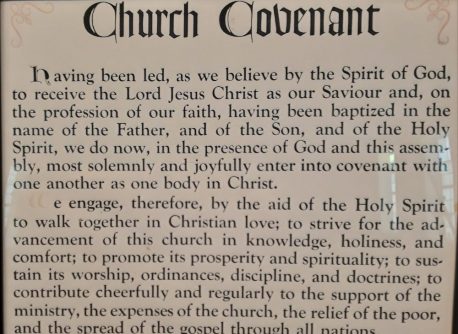
The marks of a healthy church, according to the IX Marks organization, include:
- Expositional Preaching
- Biblical Theology
- The Gospel
- Conversion
- Evangelism
- Membership
- Discipline
- Discipleship.
- Leadership
Jesus’ prescription for a healthy church: Saltiness
“Salt is good, but if the salt has lost its taste, how shall its saltiness be restored? It is of no use either for the soil or for the manure pile. It is thrown away. He who has ears to hear, let him hear.”

Luke 14:34-35
Sermon scriptures:
- Matthew 18:34-35
- 1 Corinthians 5
I came across the Nine Marks framework while trying to understand the biblical pattern of church leadership. Two months ago, on June 21, I tried to preach a sermon from Titus 1 and 1 Timothy 3 on the subject and stay faithful to the scripture. After all, the first mark of church health in this framework is expositional preaching. To add to the irony, I ended up preaching a sermon on the last mark at the beginning of the series. To end this series, I want us to examine two passages that illustrate the need for meaningful membership by the means of careful discipline.
Next month, church would mark our 172nd year of ministry. We would be planning our Biennial Homecoming celebration, but such a gathering seems difficult at best with the present state of the world in which our church marks this occasion. We will be working hard in the weeks ahead to make a home for and to welcome our new pastor and his family. We have our plates full, and I’m not talking about a church potluck!
God has given us a pattern in his word of making a covenant together. He alone is able to make and keep a covenant with himself, but he sets this expectation upon his people in the world. The covenant that our church most recently adopted was written in 1853 by someone who probably never heard of Campton. It is my hope that we will work together and look to God’s word to redraft and renew our covenant with one another to move our church forward. We need a renewed sense of membership and commitment to one another and ultimately to Jesus and to his word.
In the first century and the 21st century, we need to be distinguished from the world around us. We cannot profess to love God if we ignore his expectation for personal holiness. We cannot love our neighbors in Campton if we do not lead them by example into fellowship with God. We cannot make disciples while ignoring discipline. They won’t listen to our pleas to repent and believe the gospel if we are not true to the gospel we proclaim.
Whether or not we celebrate this homecoming after our traditions, I hope we can start a new tradition of gathering together to affirm a church covenant as members together of Christ’s church; his body, and his bride.
 There are many tools that can help us do the work of an evangelist. We are called to do the work, not just possess the items and knowledge. With the resources we have, there is no excuse for us to ignore our calling.
There are many tools that can help us do the work of an evangelist. We are called to do the work, not just possess the items and knowledge. With the resources we have, there is no excuse for us to ignore our calling.